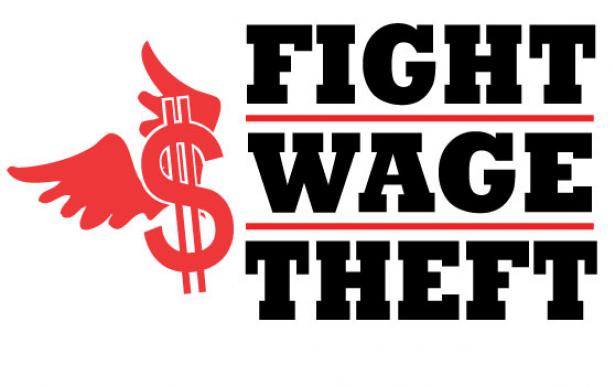How do the biggest corporations earn such massive profits? They’d like you to think it’s the result of delivering a superior product or service. But one part of that story is years of wage theft from their employees.
Good Jobs First, a policy resource center focused on government and corporate accountability, recently carried out a year-long investigation into wage theft by large employers, compiling information from collective action lawsuits brought by groups of ripped-off workers, as well as actions brought by the department of labor and state-specific regulatory agencies. The results, brought together in a report released this week titled Grand Theft Paycheck: the Large Corporations Shortchanging their Workers’ Wages, are eye-opening: 4,220 cases since the turn of the millennium with penalties totaling $9.2 billion.
You might think wage theft is a crime only small or fly-by-night businesses commit. In reality, just about every well-known corporate name made its way onto the list of nearly five hundred companies that have racked up penalties worth more than $1 million. Bringing up the rear is Southwest Airlines with one case worth $1 million. At the very top (by far) is Walmart, with a staggering $1.4 billion worth of settlements and fines from only thirty-six cases.
No industry is exempt. There’s freight and logistics (FedEx, second behind WalMart in total penalties with $502 million); pharmaceuticals (Novartis); health services (Tenet Healthcare); telecommunications (AT&T, Comcast; Verizon); food and restaurants (McDonald’s, Starbucks, Coca-Cola); tech (Microsoft, Apple, Alphabet), even amusement parks (Six Flags). Arguably best represented is the finance sector, with five of the top twelve violators being banks and insurance companies. Bank of America, Wells Fargo, and JP Morgan Chase (third, fourth, and fifth respectively) have alone paid out around $746 million in penalties.
Maybe the most striking aspect of the report is how profitable the worst offenders are. Ten of the twelve most penalized have profits totaling in the billions — sometimes tens of billions — with an average CEO pay of around $16 million. According to the report, the very largest corporations — those listed in the Fortune 500, Fortune Global 500, or Forbes’ list of biggest companies — accounted for half the total cases, and 74 percent of the penalties. Of the list of Fortune 500 companies, 303 have at least one wage theft case, states the report.
What exactly did the wage theft entail? Of the cases where the offenses were detailed, few involved obvious violations like paying less than the minimum wage or confiscating tips. The most common offense by far was not paying workers for overtime, followed by wrongly classifying workers to exempt them from basic labor standards, and failing to give workers meal or rest breaks. One common violation involves requiring hourly workers to do tasks either before clocking in or after clocking out.
The report found 127 confidential settlements whose details are hidden from the public. Meanwhile, only eight states provided data and more than half of the private lawsuits examined came from California, thanks to that state’s relatively strong labor standards.
Indeed, an earlier nine-month investigation by Politico found that the enforcement of wage laws around the country is heavily under-resourced and sometimes nonexistent, with workers usually not even able to get back the money they’re owed. By one estimate, workers in Colorado alone are deprived of $749.5 million a year in wages. This may only get worse, with Trump’s labor department trying out a pilot program where offenders are made to simply give back the money they owe without paying any kind of penalty.
The report puts forward some solutions to the wage theft problem, from beefing up regulators’ resources to go after offenders to taking a cue from California and strengthening state laws against wage theft. But, it notes, given the government’s vulnerability to corporate capture, under-resourcing, and hostile politicians, one solution stands above all others: making it easier for workers to unionize.
“Collective bargaining and collective worker power are the most effective way to stop wage theft,” it states.
Branko Marcetic is an editorial assistant at Jacobin. He lives in Auckland, New Zealand.


Spread the word